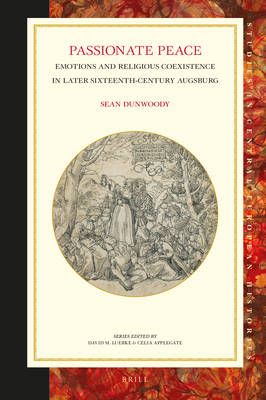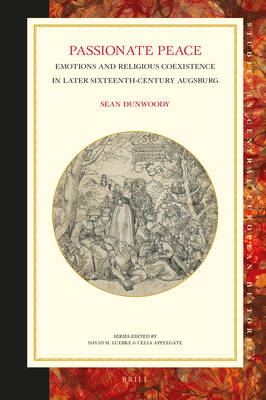
Bedankt voor het vertrouwen het afgelopen jaar! Om jou te bedanken bieden we GRATIS verzending (in België) aan op alles gedurende de hele maand januari.
- Afhalen na 1 uur in een winkel met voorraad
- In januari gratis thuislevering in België
- Ruim aanbod met 7 miljoen producten
Bedankt voor het vertrouwen het afgelopen jaar! Om jou te bedanken bieden we GRATIS verzending (in België) aan op alles gedurende de hele maand januari.
- Afhalen na 1 uur in een winkel met voorraad
- In januari gratis thuislevering in België
- Ruim aanbod met 7 miljoen producten
Zoeken
Passionate Peace: Emotions and Religious Coexistence in Later Sixteenth-Century Augsburg
Sean Dunwoody
€ 174,45
+ 348 punten
Omschrijving
In an age characterized by religious conflict, Protestant and Catholic Augsburgers remained largely at peace. How did they do this? This book argues that the answer is in the "emotional practices" Augsburgers learned and enacted--in the home, in marketplaces and other sites of civic interaction, in the council house, and in church. Augsburg's continued peace depended on how Augsburgers felt--as neighbors, as citizens, and believers--and how they negotiated the countervailing demands of these commitments. Drawing on police records, municipal correspondence, private memoranda, internal administrative documents and other records revealing everyday behavior, experience, and thought, Sean Dunwoody shows how Augsburgers negotiated the often-conflicting feelings of being a good believer and being a good citizen and neighbor.
Specificaties
Betrokkenen
- Auteur(s):
- Uitgeverij:
Inhoud
- Aantal bladzijden:
- 332
- Taal:
- Engels
- Reeks:
- Reeksnummer:
- nr. 71
Eigenschappen
- Productcode (EAN):
- 9789004525948
- Verschijningsdatum:
- 8/09/2022
- Uitvoering:
- Hardcover
- Formaat:
- Genaaid
- Afmetingen:
- 155 mm x 234 mm
- Gewicht:
- 635 g

Alleen bij Standaard Boekhandel
+ 348 punten op je klantenkaart van Standaard Boekhandel
Beoordelingen
We publiceren alleen reviews die voldoen aan de voorwaarden voor reviews. Bekijk onze voorwaarden voor reviews.









